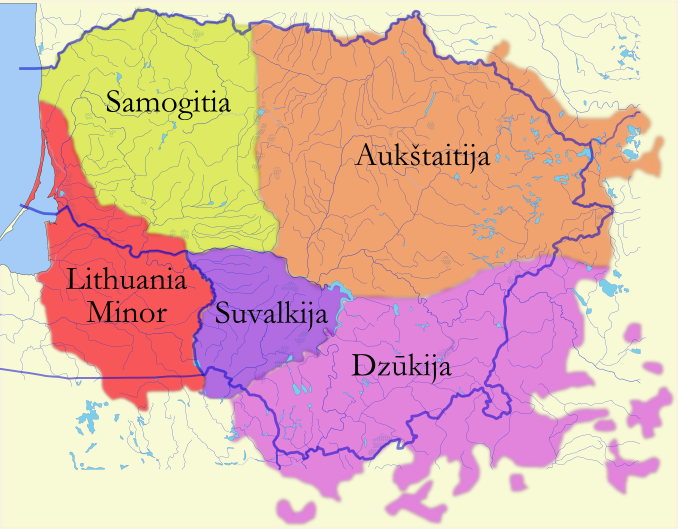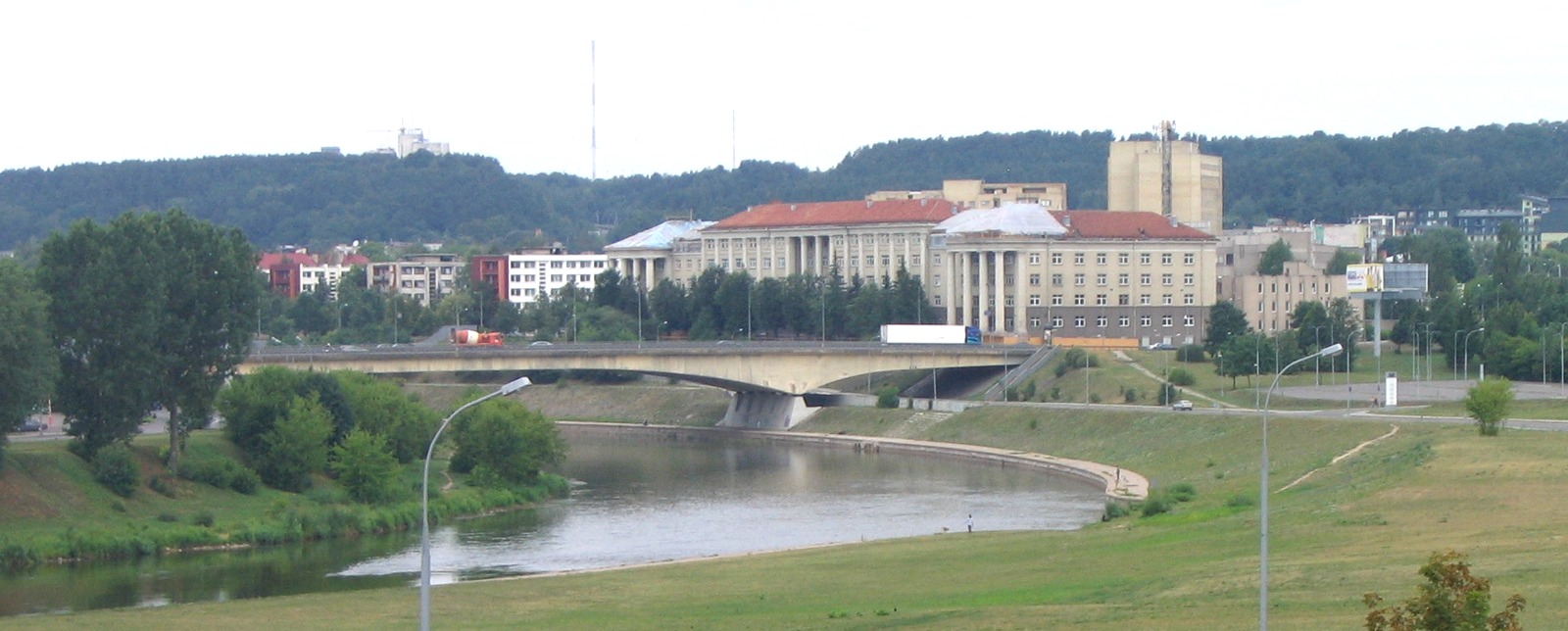|
Jonas Trinkūnas
Jonas Trinkūnas (28 February 1939 – 20 January 2014) was the founder of Lithuania's pagan revival Romuva, as well as being an ethnologist and folklorist. In the Soviet Union Trinkūnas was born in 1939 in Klaipėda. He finished primary school in Kaunas in 1957 and in 1965 he earned a degree in philology at the Faculty of Lithuanian Language and Literature of Vilnius University. While still a student, he founded the Society of Friends of India ( lt, Indijos bičulių draugija). The Vedic traditions of India were what pushed him to search for the roots of Lithuanian culture and its spiritual meaning. In 1967, Trinkūnas and his friends organised the first Rasa ( Summer Solstice) celebration in Kernavė, which was met with disapproval by the Soviet authorities. Despite pressure from the KGB, Lithuanians organized folklore and ethnographic ensembles, lit the bonfires on Rasa and candles on Vėlinės (All Saints' Day)—symbols important to the cultural vitality of the nat ... [...More Info...] [...Related Items...] OR: [Wikipedia] [Google] [Baidu] |
Lithuanian SSR
The Lithuanian Soviet Socialist Republic (Lithuanian SSR; lt, Lietuvos Tarybų Socialistinė Respublika; russian: Литовская Советская Социалистическая Республика, Litovskaya Sovetskaya Sotsialisticheskaya Respublika), also known as Soviet Lithuania or simply Lithuania, was ''de facto'' one of the constituent republics of the USSR between 1940–1941 and 1944–1990. After 1946, its territory and borders mirrored those of today's Republic of Lithuania, with the exception of minor adjustments of the border with Belarus. During World War II, the previously independent Republic of Lithuania was occupied by the Soviet army on 16 June 1940, in conformity with the terms of the 23 August 1939 Molotov–Ribbentrop Pact, and established as a puppet state on 21 July. Between 1941 and 1944, the German invasion of the Soviet Union caused its ''de facto'' dissolution. However, with the retreat of the Germans in 1944–1945, Soviet hegemony was re ... [...More Info...] [...Related Items...] OR: [Wikipedia] [Google] [Baidu] |
Lithuanian Mythology
Lithuanian mythology ( lt, Lietuvių mitologija) is the mythology of Lithuanian polytheism, the religion of pre-Christian Lithuanians. Like other Indo-Europeans, ancient Lithuanians maintained a polytheistic mythology and religious structure. In pre-Christian Lithuania, mythology was a part of polytheistic religion; after Christianisation mythology survived mostly in folklore, customs and festive rituals. Lithuanian mythology is very close to the mythology of other Baltic nations – Prussians, Latvians, and is considered a part of Baltic mythology. Sources and evidence Early Lithuanian religion and customs were based on oral tradition. Therefore, the very first records about Lithuanian mythology and beliefs were made by travellers, Christian missionaries, chronicle writers and historians. Original Lithuanian oral tradition partially survived in national ritual and festive songs and legends which started to be written down in the 18th century. The first bits about Baltic ... [...More Info...] [...Related Items...] OR: [Wikipedia] [Google] [Baidu] |
Seimas
The Seimas of the Republic of Lithuania ( lt, Lietuvos Respublikos Seimas), or simply the Seimas (), is the unicameral parliament of Lithuania. The Seimas constitutes the legislative branch of government in Lithuania, enacting laws and amendments to the Constitution, passing the budget, confirming the Prime Minister and the Government and controlling their activities. Its 141 members are elected for a four-year term, with 71 elected in individual constituencies, and 70 elected in a nationwide vote based on open list proportional representation. A party must receive at least 5%, and a multi-party union at least 7%, of the national vote to qualify for the proportional representation seats. Following the elections in 2020, the Homeland Union – Lithuanian Christian Democrats is the largest party in the Seimas, forming a ruling coalition with the Liberal Movement and the Freedom Party. The Seimas traces its origins to the Seimas of the Grand Duchy of Lithuania and the Sejm of ... [...More Info...] [...Related Items...] OR: [Wikipedia] [Google] [Baidu] |
Jonas Basanavičius Award
Jonas may refer to: Geography * Jonas, Netherlands, Netherlands * Jonas, Pennsylvania, United States * Jonas Ridge, North Carolina, United States People with the name * Jonas (name), people with the given name or surname Jonas * Jonas, one of two Jeneum (figures in the Book of Mormon) * Jonah or Jonas, a prophet in the Hebrew Bible * Jonas (footballer, born 1943), full name Jonas Bento de Carvalho, Brazilian football midfielder * Jonas (footballer, born 1972), full name Carlos Emanuel Romeu Lima, Angolan football midfielder * Jonas (footballer, born 1983), full name Jonas Brignoni dos Santos, Brazilian football defender * Jonas (footballer, born 1984), full name Jonas Gonçalves Oliveira, Brazilian football forward * Jonas (footballer, born 1987), full name Jonas Jessue da Silva Júnior, Brazilian football defender * Jonas (footballer, born 1991), full name Jonas Gomes de Sousa, Brazilian football midfielder Arts, entertainment, and media * ''Jonas'' (novel), a 1955 novel ... [...More Info...] [...Related Items...] OR: [Wikipedia] [Google] [Baidu] |
Kaliningrad Oblast
Kaliningrad Oblast (russian: Калинингра́дская о́бласть, translit=Kaliningradskaya oblast') is the westernmost federal subject of Russia. It is a semi-exclave situated on the Baltic Sea. The largest city and administrative centre of the province (oblast) is the city of Kaliningrad, formerly known as Königsberg. The port city of Baltiysk is Russia's only port on the Baltic Sea that remains ice-free in winter. Kaliningrad Oblast had a population of roughly 1 million in the Russian Census of 2010. The oblast is bordered by Poland to the south, Lithuania to the north and east and the Baltic Sea to the north-west. The territory was formerly the northern part of the Prussian province of East Prussia; the remaining southern part of the province is today part of the Warmian-Masurian Voivodeship in Poland. With the defeat of Nazi Germany in World War II, the territory was annexed to the Russian SFSR by the Soviet Union. Following the post-war migrat ... [...More Info...] [...Related Items...] OR: [Wikipedia] [Google] [Baidu] |
Lithuania Minor
Lithuania Minor ( lt, Mažoji Lietuva; german: Kleinlitauen; pl, Litwa Mniejsza; russian: Ма́лая Литва́), or Prussian Lithuania ( lt, Prūsų Lietuva; german: Preußisch-Litauen, pl, Litwa Pruska), is a historical ethnographic region of Prussia, where Prussian Lithuanians (or Lietuvininkai) lived, now located in Lithuania and the Kaliningrad Oblast of Russia. Lithuania Minor encompassed the northeastern part of the region and got its name from the territory's substantial Lithuanian-speaking population. Prior to the invasion of the Teutonic Knights in the 13th century, the main part of the territory later known as Lithuania Minor was inhabited by the tribes of Skalvians and Nadruvians. The land depopulated during the incessant war between Lithuania and the Teutonic Order. The war ended with the Treaty of Melno and the land was repopulated by Lithuanian newcomers, returning refugees, and the remaining indigenous Baltic peoples; the term Lithuania Minor appeared for ... [...More Info...] [...Related Items...] OR: [Wikipedia] [Google] [Baidu] |
Kūlgrinda (band)
Kūlgrinda is a folk music group from Vilnius, Lithuania, established in 1989 by Inija Trinkūnienė, Inija and Jonas Trinkūnas. The group is connected to the Baltic neopaganism, Lithuanian neopagan movement Romuva (religion), Romuva and often performs as a part of the movement's ceremonies. History The band was founded in 1989 by Jonas Trinkūnas and his wife Inija Trinkūnienė who also were the leaders of the Modern Paganism, modern Pagan movement Romuva (religion), Romuva. The band has from the start functioned as the musical expression of this movement. Some of the recorded material has functioned as "musical scriptures" for the Romuva members and the band has regularly participated as an integral part of the movement's events.Michael F. Strmiska. 2012. "Paganism-Inspired Folk Music, Folk Music-Inspired Paganism and New Cultural Fusions in Lithuania and Latvia". Handbook of New Religions and Cultural Production. . pp. 361-364 On the website of Romuva, Kūlgrinda is described a ... [...More Info...] [...Related Items...] OR: [Wikipedia] [Google] [Baidu] |
Pagan Faiths
Paganism (from classical Latin ''pāgānus'' "rural", "rustic", later "civilian") is a term first used in the fourth century by early Christians for people in the Roman Empire who practiced polytheism, or ethnic religions other than Judaism. In the time of the Roman empire, individuals fell into the pagan class either because they were increasingly rural and provincial relative to the Christian population, or because they were not '' milites Christi'' (soldiers of Christ).J. J. O'Donnell (1977)''Paganus'': Evolution and Use ''Classical Folia'', 31: 163–69. Alternative terms used in Christian texts were ''hellene'', ''gentile'', and ''heathen''. Ritual sacrifice was an integral part of ancient Graeco-Roman religion and was regarded as an indication of whether a person was pagan or Christian. Paganism has broadly connoted the " religion of the peasantry". During and after the Middle Ages, the term ''paganism'' was applied to any non-Christian religion, and the term presumed a be ... [...More Info...] [...Related Items...] OR: [Wikipedia] [Google] [Baidu] |
Vilnius Pedagogical University
Vytautas Magnus University Education Academy ( lt, Vytauto Didžiojo universiteto Švietimo akademija or VDU ŠA) – an academical unit of Vytautas Magnus University, which specialized in preparing school teachers and other educators. Located in Vilnius and Kaunas, Lithuania. Name changes * 1935–1939 National Pedagogical Institute * 1939–1992 Vilnius Pedagogical Institute * 1992–2011 Vilnius Pedagogical University * 2011–2018 Lithuanian University of Educational Sciences * 2019–present Vytautas Magnus University Education Academy History The first pedagogical institution in Lithuania was established in Klaipėda in 1935 by the Lithuanian government and was called the ''National Pedagogical Institute''. After the Nazi Germany ultimatum to Lithuania in March 1939, the Nazis took control of the Klaipėda Region. The institute was moved to Panevėžys. After Lithuania regained portions of the Vilnius Region, the institution was moved to Vilnius in the autumn of 1939. It ... [...More Info...] [...Related Items...] OR: [Wikipedia] [Google] [Baidu] |
Ministry Of Culture (Lithuania)
The Ministry of Culture of the Republic of Lithuania ( lt, Lietuvos Respublikos kultūros ministerija) is a governmental body of the Republic of Lithuania. Its mission is to formulate and implement state cultural policies supporting professional and amateur art, theatre, music, fine arts, cinema, museums, libraries, and written publications, to guard copyright and copyright-related interests, and to protect cultural values. The ministry awards prizes including Lithuanian National Prize for Culture and Arts for achievements in the arts and culture, the Martynas Mažvydas Award for scholarly research, National Jonas Basanavičius Award for outstanding achievements related to ethnicity, also awards to young creators, librarians, translators, etc. The Top Prize of Ministry of Culture of the Republic of Lithuania is the honorary badge “Nešk Savo Šviesą Ir Tikėk”. It is an acknowledgment of many years of work in the field of culture and arts, of creativity and its promotion. P ... [...More Info...] [...Related Items...] OR: [Wikipedia] [Google] [Baidu] |
Sąjūdis
Sąjūdis (, "Movement"), initially known as the Reform Movement of Lithuania ( lt, Lietuvos Persitvarkymo Sąjūdis), is the political organisation which led the struggle for Lithuanian independence in the late 1980s and early 1990s. It was established on 3 June 1988, and was led by Vytautas Landsbergis. Its goal was to seek the return of independent status for Lithuania. Historical background In the mid-1980s, Lithuania's Communist Party leadership hesitated to embrace Gorbachev's perestroika and glasnost. The death of Petras Griškevičius, first secretary of the Communist Party of Lithuania, in 1987 was merely followed by the appointment of another rigid communist, Ringaudas Songaila. However, encouraged by the rhetoric of Mikhail Gorbachev, noting the strengthening position of Solidarity in Poland and encouraged by the Pope and the U.S. Government, Baltic independence activists began to hold public demonstrations in Riga, Tallinn, and Vilnius. Formation At a meeting a ... [...More Info...] [...Related Items...] OR: [Wikipedia] [Google] [Baidu] |



_b_016.jpg)
